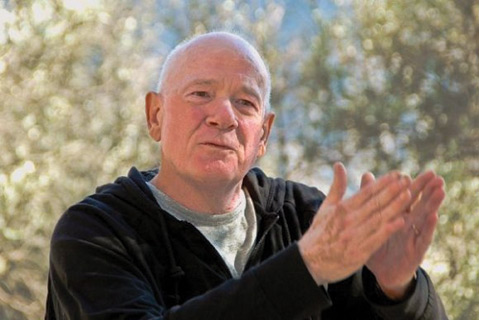
There is no doubt that Dr. Raymond Moody has changed the way many people look at dying. In his 1975 best-selling book Life After Life, Moody introduced the concept of the near-death experience (NDE), which has become a common phenomenon with the advances of medical resuscitation. The ongoing debate about the possibility of an afterlife has gained momentum since his 2010 book, Glimpses of Eternity, in which he describes the “shared death experience,” where those sitting with the dying person also experience out-of-body sensations.
The son of a harshly cynical surgeon, military officer, and medic in WWII, Moody himself is a medical doctor, a doctor of philosophy, a counselor, and a prison psychologist, as well as the best-selling author of 12 books. He is the ultimate rationalist, and conversations with him inevitably veer back to his favorite subjects: the philosophy of language, the reasoning of ancient Greek philosopher Democritus and Plato’s The Republic, and his family, which includes his older children, a grandson, and two teens (13 and 15) still at home with him and his wife in rural Alabama.
When Life After Life was published in 1975, had you any idea you were opening a national conversation on death and dying? No, I did not! The book’s first printing was 19,000, and I just hoped some would sell and get into the hands of some medical doctors and psychologists. [The book has since been translated into a dozen foreign languages and sold more than 14 million copies.]
You knew at the time there’d be resistance to these ideas from skeptics, scientists, and clergymen. Has that dynamic changed in 40 years? There are still people who are holdouts to ideology. People into hard sciences, neurophysiology, often ignore a core philosophical question: “What is the relationship between our unique, inner experience of conscious awareness and material substance?” The answer is: We don’t know, and some people are so terrified to say, “I don’t know.”
What are you afraid of? I have a fear of driving, and pain. [Laughs] But I’m not afraid of death at all.
How would you describe your personal religion? I have never been religious. I talk to God every day, but he’s never said a word to me about religion! I think the most powerful prayer is surrender.
Regarding the dismissal of NDEs as hallucinations or a product of “the compromised brain”— is that debate over yet? The debate has changed surprisingly little. The framework is still primarily threefold: the parapsychologists who claim that science can solve the riddle of the afterlife; the pseudo-skeptics who believe the brain is just acting up from a lack of oxygen; and the “fundaChristians” who say they saw the light and it’s the devil in disguise.
Would you agree there’s a revolution going on to restore death with dignity, the kind of passing, say, of our grandparents’ generation? Most definitely. We still talk about death with euphemisms, but there’s a big shift going on.
Who do you consider the key figures in this movement? My medical colleagues equally fascinated by this are Dr. Eben Alexander — to see his philosophical transformation on this is profound; cardiologist Dr. Pim van Lommel in Amsterdam; and Dr. Jeffrey Long, a radiation oncologist in Louisiana. Incredible work.
How do you see the future of hospices in the U.S.? Of end-of-life care? Of healthcare policies? The baby-boom generation is waking up to their own mortality as they face their parents’ deaths. Look at how common hospice is now versus 40 years ago. Interestingly, the common DNR [do not resuscitate] order in hospitals has changed its language to “allow natural death,” and with this shift, 25 percent more patients and families reportedly signed up.
4•1•1
Dr. Moody will speak on The Shared Death Experience: Profound Evidence of the Afterlife on Wednesday, March 19, 6:30-8 p.m., at Trinity Episcopal Church. Prior, there will be An Intimate Conversation with Dr. Moody moderated by William Peters, founder of the Shared Crossing Project, 5-6 p.m. For more information and tickets, visit sharedcrossing.com.



